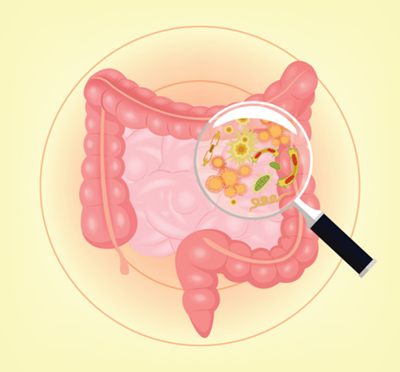 Microbiota in the intestines. Credit: iStock.
Microbiota in the intestines. Credit: iStock.Research on how diet impacts the gut microbiota has rapidly expanded in the last several years. Studies show that diets rich in red meat are linked to diseases such as colon cancer and heart disease. In both mice and humans, researchers have recently discovered differences in the gut microbiota of those who eat diets rich in red meat compared with those who don’t. This is likely because of a sugar molecule in the red meat, called N-glycolylneuraminic acid (Neu5Gc), that our bodies can’t break down. Researchers believe the human immune system sees Neu5Gc as foreign. This triggers the immune system, causing inflammation in the body, and possibly leads to disease over time.
A study supported in part by NIGMS revealed higher amounts of a specific bacteria in mice and humans with a red meat-rich diet. These bacteria seem to have an enzyme that removes Neu5Gc from the meat, preventing the buildup in the body. More research is needed, but these findings offer another potential approach for reducing the risk of certain diseases. Read more about the study in NIH Research Matters.

